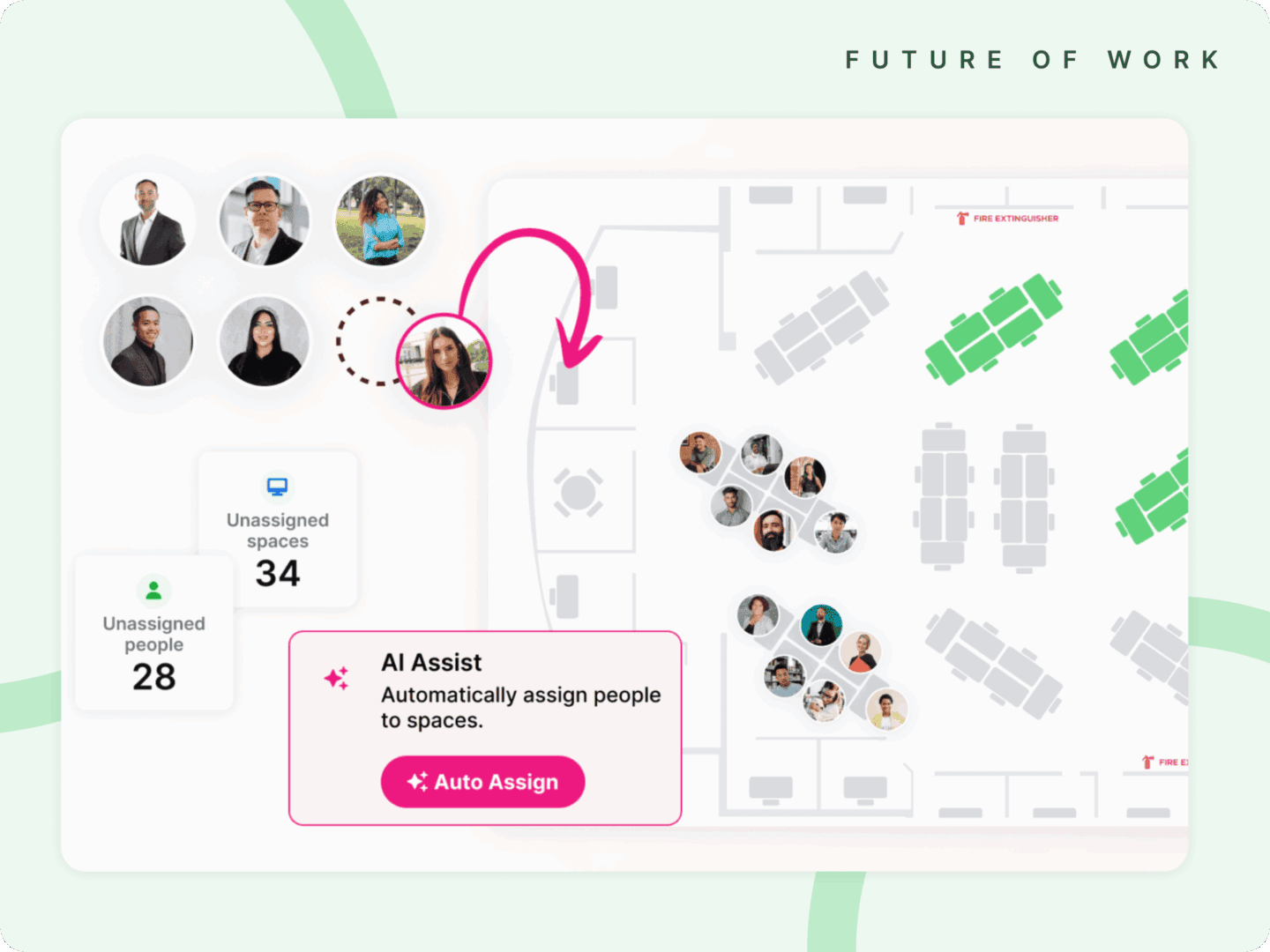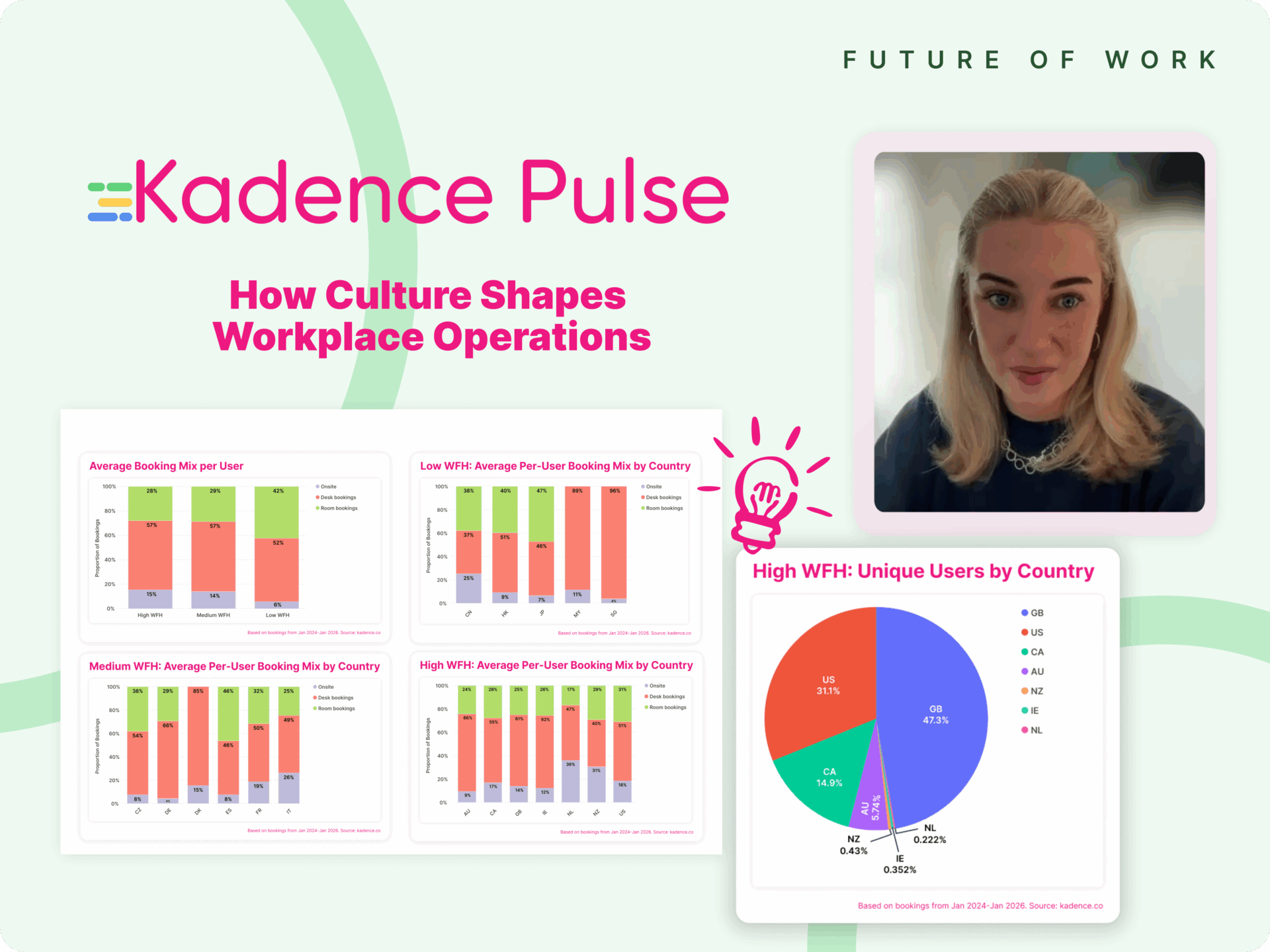Big changes have been announced to UK Work Law that supports employees looking for flexibility.
From April 6, all employees in UK businesses will be legally entitled to request changes to how long, when and where they work. Employers will only be able to reject requests on specific grounds.
It’s a huge milestone for hybrid work in the UK. The policy follows a string of legislative action in Europe, and broader movements bringing hybrid work to the forefront of the modern workplace.
So how can you prepare for these changes to UK Work Law as an employer in the UK and elsewhere?
Europe Moves Towards Hybrid Work
In Europe, legal infrastructure to support flexible work has been gathering momentum for some time.
Since remote work soared during the pandemic, multiple European countries have rallied to provide proper hybrid frameworks for employers and employees.
The Netherlands, Portugal, Germany and Ireland are just a few countries that have established — or are in the process of establishing — structures around how and where we work.
So it’s no surprise that the UK Work Law is now following suit with its own change in legislation. The new flexible working laws give all employees the legal right to request flexible working from the first day of their employment. Employers will have to cite one of eight business reasons as grounds for rejecting these requests.
Flexible work is gathering momentum, and European governments are spearheading the movement.
The Impact Of Hybrid Work Is Clear
This recent surge in official policies around hybrid work might not come as a surprise.
Recent research has made it abundantly clear that when we are flexible, we’re also happier, more engaged and productive.
A recent study by Gallup showed that 60% of respondents felt hybrid work helped reduce their burnout, while another 85% of people said they preferred hybrid models.
On the productivity front, research shows that fully flexible companies outperform others with a 16% lead in revenue growth.
The roadblocks are clearing. We’re finally able to move towards a model where people get to choose where they do their best work — and reap the rewards for it.
The next step is preparing our organizations for even bigger changes ahead. Now that modern work is less about where and more about how, it’s time to start getting smarter about how we organize our teams, and how we utilize physical spaces.
Give Your Office A Makeover
For years, we didn’t have a choice about where we could go and work. It was the office or nothing.
Now that employees can just as easily get all their tasks done from home, it’s up to office managers and HR departments to ensure the office is an attractive place to come into. A destination, if you will. Nobody wants to spend two hours commuting into a bland, uninspiring space.
So it’s time to give the office a major facelift. To make it a place your employees want to spend time in. A place where they can get all sorts of tasks done — with focus booths for deep work and inviting open desk spaces for their everyday admin and cross-table chit chats with colleagues.
Most importantly – it’s time to make the office a place where your teams can collaborate together in ways they could never at home. That might involve arranging office neighbourhoods to get the right colleagues sitting by each other, introducing social zones for casual chats, or planning your meeting room spaces so they’re inspiring, colorful, creative hubs — not dreary white-walled boxes.
Lastly of all — don’t forget to make it green! Nobody has ever felt dragged down by a bonsai tree.
Get Smarter About Your Hybrid Work Platform
The growth of hybrid work also comes with complications about how you manage your people.
With employees coming and going from your physical office and their home set ups at will, it can be harder than ever to keep track of where team members are, and how they’re going about their work.
That’s where a hybrid operating platform comes in.
Teams navigating the hybrid age need to ensure they’re partnering with tools that help them solve their hybrid headaches — rather than adding to them. Platforms like Kadence don’t just offer simple room and desk booking features — they are designed to help you bring teammates together when it makes most sense, so you never miss out on an opportunity to collaborate. That could involve being pinged when your teammates have booked a desk in a workspace nearby, or being part of a recurring office day with your wider team.
Hybrid work platforms are also built with the interests of business owners in mind. If you’re worried about how efficiently you’re using your spaces, tools like Kadence will give you all of the data and insights you need to make smart decisions about your real estate. By showing you the exact usage of your physical spaces (and flexible workspaces, if your platform supports it!) your hybrid work companion will empower you to make the right decisions about your real estate going forward.
It can also be a strong contributor to your company’s ESG goals. By leveraging insights about office occupancy trends and any underused areas, you can take action straight away to switch off inactive work zones or group hot desks together. The result? Lower building emissions and a reduction in your carbon footprint.
Understanding exactly what different hybrid work platforms can offer you is the first step to working with a partner that will grow with you for years to come.
The UK has become the latest country to put a marker down for flexible work.
I hope I’ve showed you how the move to flexible working doesn’t have to come at the cost of the physical office — nor the organization of your people.
The more we transition to fluid ways of working, and the more governments actively encourage it, the more we need to pair with the right technology to help fully support us along the way.
Hybrid work platforms aren’t just tools to help us manage a more flexible workplace, they’re catalysts for change. They support the shift towards a model that values output over presence, wellbeing alongside productivity, and choice over rigidity.
In doing so, they not only respond to the current legislative and cultural shifts but also pave the way for a future where work is more adaptable, more humane, and ultimately, more rewarding.
If you’d like to hear more about hybrid work platforms and what they can do for you, please don’t hesitate to get in touch. We’d love to hear from you!




